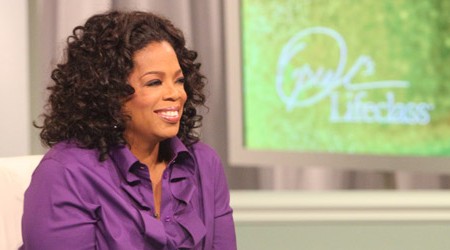It’s official! Taking the advice of celebrities, not to mention other non-scientists and non-physicians, may be bad for your health – and your wallet. A new study from McMaster University suggests that we’re hard-wired to believe the famous, even when we know their claims are unfounded and unsupported by actual evidence.
 Does this image make you want to buy a book?
Does this image make you want to buy a book?
Ever wondered why cosmetic manufacturers spend millions each year on full-page ads featuring famous fashion models and movie stars using their products? The paint makers know you’re a sucker for a ‘star’ endorsement. Ever wonder why you’re a sucker for ‘star’ endorsements? Two McMaster researchers say you have no choice: You’re ‘wired’ to fall for them.
In a recently-released study, the researchers say they looked at the phenomenon of celebrity endorsements and found that we, as a society, are massively influenced by the opinions of the ‘famous’ which, in turn, are literally broadcast world-wide by Television and the Internet.
Disclaimer: I’m not a doctor and I don’t even play one on TV. But I know how to interpret the advice of my own doctor and how to differentiate those opinions from the emotional exhortations of celebrities I see on screen or in magazines.
So… Even if I like some of the tips and techniques that celebrity cooks offer on their TV shows, I won’t buy their branded cookware or food products they endorse – unless the quality and features I want are there and the price is right. I don’t use the $200. face cream, or the $100. cream. Not even the $50. cream or even the $25. cream! I use one that goes for a under $20. and comes with the blessing of my doctor. I take only the vitamins and minerals and supplements my doctor says I need. (That’s a topic all its own, and there’s been another recent study, by Harvard University researchers, that shows most multivitamins and other popular supplements don’t do anything for you that adding some more fruit and veggies to your diet wouldn’t do.)
Disclaimer: I have a strongly conditioned skepticism about stuff that well known personalities push on TV and in print. I was a socially aware teen in the 60s and, then, a print reporter and editor for more than 30 years in my first career. Skepticism – or at least a healthy tendency to question authority – was seen as a valuable asset in the job.
In short, the McMaster study says humans have a natural inclination to want to be like those they look up to – like heroes and celebrities. And, so, if a celeb uses a certain skin cream, we are naturally inclined to try that skin cream. No matter what it costs. We just gotta have it. See how great she looks? So, if we use it, we’ll wake up tomorrow morning looking like a celeb? Of course, this never happens – but we keep getting sucked in by the magic of celeb associations…
So, just remember: Before you buy that celeb-endorsed item… Ask yourself, first, if the celeb in question has any professional standing in reference to the product or service they’re recommending to you. Second – and always a good policy – ask if the claim(s) the celeb is making about the product/service in question sound too good to be true. If they do sound too good, they’re probably not true.
And then, act accordingly.
~ Maggie J.

